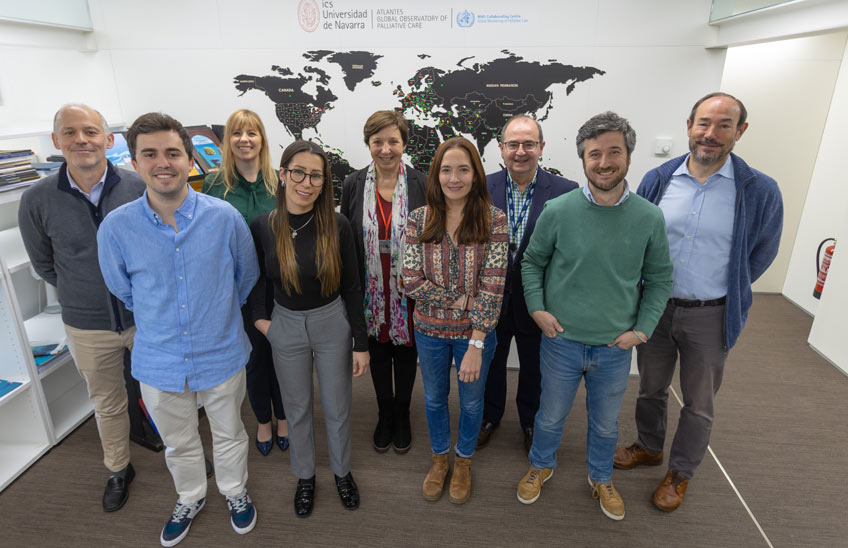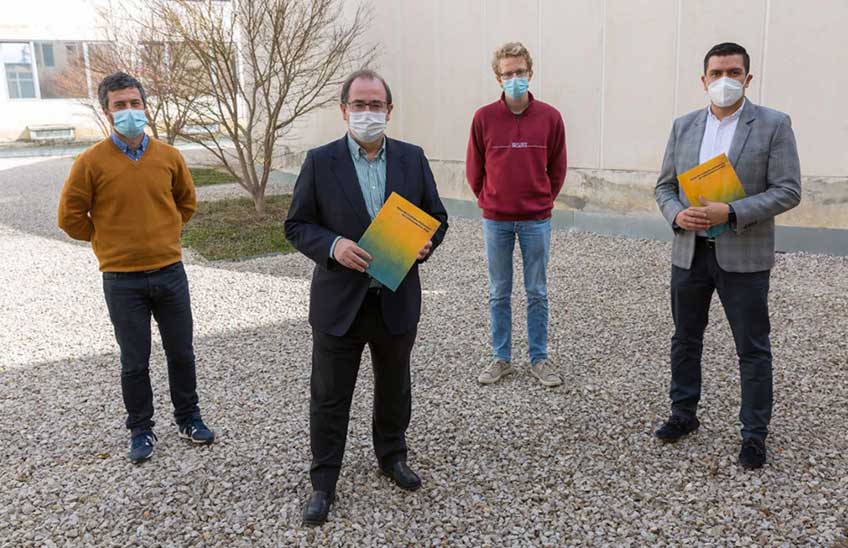3.2 million people in the Eastern Mediterranean Region need palliative care and only 10-20% access adequate services.
The Atlas of Advances in Palliative Care in Eastern Mediterranean Countries 2025 has analyzed 22 countries in this region.

21 | 10 | 2025
3.2 million people in the Eastern Mediterranean Region experience health-related suffering requiring palliative care each year, including around 300,000 children. However, only 10-20% access adequate services. These data are from the Atlas of Advances in Palliative Care in Eastern Mediterranean Countries 2025 published by the Global Palliative Care Observatory ATLANTES, of the Institute for Culture and Society (ICS) of the University of Navarra. This is the third edition of the study which, through indicators, evaluates the development of palliative care in the region to identify areas for improvement and provide countries with up-to-date, reliable and evidence-based information, as well as a comprehensive analysis of the development of palliative care in each country.
In this edition, a total of 22 countries comprising the region have been analyzed. The main conclusion is that, although some countries show promising progress in policies, Education and services, the region continues to face important limitations in access to services and medicines, as well as in the Education of this specialization program. development is linked to national income levels.
In the Eastern Mediterranean, the main causes of serious health-related suffering are cancer, cerebrovascular diseases, premature births, severe injuries and liver problems. A total of 258 specialized palliative care services exist in the region to alleviate these ailments. Only in Kuwait and Saudi Arabia are palliative care services systematically offered. On average, there are 0.04 services per 100,000 inhabitants, far below international standards (the World Health Organization recommends 2 services per 100,000 inhabitants).
On the other hand, access to essential medicines remains uneven. Seven countries offer essential medicines in urban primary care centers, of which only Saudi Arabia, the United Arab Emirates and Tunisia make immediate-release oral morphine available on a regular basis.
Policy and Education
In terms of national policies, Jordan is the only one with a comprehensive palliative care strategy audited in the last five years, although some others do integrate palliative into other health plans (such as cancer, for example) or have figures acting as a national palliative authority.
research reveals that university training in palliative care is still in its infancy. Morocco is the only country that integrates the subject in a compulsory way in all its medical schools. On the other hand, only Jordan offers compulsory training in all its nursing Schools . Progress in medical specialization is also limited: seven countries recognize palliative medicine as a subspecialty or equivalent, although most lack official recognition and structured training programs.
An unstable region
The researchers point out that, in the face of armed conflict, displacement and humanitarian crises in some areas, the Atlas underscores the urgent need to integrate palliative care into response systems and universal health coverage as the need for care continues unabated. "Suffering related to serious illness persists, even when curative or preventive services are interrupted, and millions of people face pain, dyspnea or psychological distress without access to adequate relief," they denounce.
Thus, they consider palliative care "an ethical and humanitarian imperative, not a luxury". They ensure that, even in fragile contexts, health systems can alleviate suffering, preserve dignity and offer comfort to people facing life-threatening illness or the consequences of violence and displacement.
Specifically, the insertion of palliative care in conflict zones makes it possible to support health staff in the management of pain and distress (even if there are no curative options); reduce hospitalizations and avoidable suffering, optimizing resources; strengthen community resilience ; as well as align with the principles of Universal Health Coverage and human rights. Thus, the researchers stress that the development of palliative care "is essential not only to strengthen health systems, but also to reaffirm the deepest meaning of compassionate care: to respond to human suffering, wherever it occurs.



